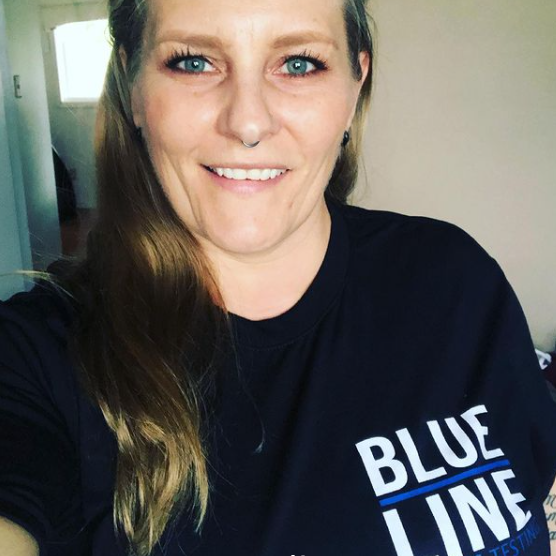
Why Trauma-Informed Practices Belong in Fitness Spaces
In recent years, the fitness world has begun to evolve beyond “no pain, no gain” mindsets to recognize a deeper truth: fitness isn’t just physical—it’s emotional and psychological too. For those navigating trauma, traditional workout spaces like commercial gyms or big box group fitness studios where you may run into people you arrested or had to deal with the day before can feel unsafe, overwhelming, or even triggering. That’s where trauma-informed fitness comes in.
At Blue Line Fitness Testing, we know that mental health and physical fitness are deeply connected. Whether someone is preparing for a law enforcement fitness test or just starting to move their body again after a tough experience, our job is to make sure the space feels supportive, respectful, and safe—so every client has a chance to succeed.
Signs you or someone you know May Need a Trauma-Sensitive Approach
Trauma isn’t always visible. A friend or co-worker may not disclose their story, but they might:
- Avoid certain movements or equipment
- Seem hyper-aware or easily startled
- Shut down emotionally or physically under pressure
- Need more time to build trust with a coach
These aren’t signs of laziness or lack of motivation—they’re clues that a more intentional and informed approach can make all the difference in your workouts.
Key Adaptations you can Use
A trauma-informed fitness program focuses less on pushing limits and more on building a foundation of trust and autonomy with yourself and with others. Here’s how to integrate that:
🔹 Grounding Warmups: Start sessions with breathwork, gentle movement, and body awareness to center the nervous system before intensity builds. This helps to feel present and in control.
🔹 Choice in Programming: Instead of rigid plans, look for options. For example, if you don’t feel comfortable with sled pushes or jump training one day, can choose alternatives that still support your goals.
🔹 Low-Pressure Cues: Language matters. Avoid triggering terms like “fail,” “no excuses,” or “go hard.” that can pop up in your head as you work out – Instead use supportive, non-judgmental cues that encourage self-trust and confidence in yourself and your abilities.
As Tasha Edwards, a Trauma-Informed Movement Specialist, explains:
“Trauma-informed fitness is about creating a space where people feel safe enough to push, explore, and grow—without fear or shame.”
Why It Works: The Benefits of Trauma-Informed Coaching
When people feel safe in their bodies and their environment, we move better—physically and emotionally. A trauma-aware fitness space helps foster:
Emotional safety
Greater body awareness and connection
More consistent participation
Increased motivation and confidence
Ultimately, this approach is about honouring each person’s lived experience while still helping build strength, stamina, and self-worth.
How We Apply This at Blue Line Fitness Testing
At Blue Line, trauma-informed fitness isn’t a niche—it’s part of our culture.
We work with first responders, aspiring law enforcement officers, and everyday community members who may carry trauma from their careers, personal experiences, or past injuries. Our coaches are trained to recognize the signs and respond with compassion and flexibility.
In both our group classes and our 1:1 personal training sessions, we prioritize:
- Choice: You’ll never be forced into a workout that doesn’t feel right.
- Support: Our trainers coach with you, not at you.
- Safety: Physical and emotional safety are imbedded into our gym environment, from layout to language.
Try It for Yourself
If you’ve ever felt anxious in a gym, avoided fitness spaces because of past experiences, or just want to train with someone who gets it—you’re not alone. We’d love to help.
🔹 Try a Group Fitness class or a 1:1 personal training session
🔹 Connect with a trauma-aware coach who understands both fitness and mental health
🔹 Take the first step toward feeling strong, capable, and safe in your own skin
👉 Book your session today at www.bluelinefitnesstesting.com
For more information on any of the law enforcement services Blue Line offers, check out these pages and posts:
THE IMPORTANCE OF BEING PREPARED: 5 TIPS FOR EXCELLING IN LAW ENFORCEMENT FITNESS TESTS
TOP 10 EXERCISES TO ACE YOUR PARE OR COPAT TEST
How the Pass the PARE in Alberta
Sirens, Slammers and Service – A podcast for first responders






